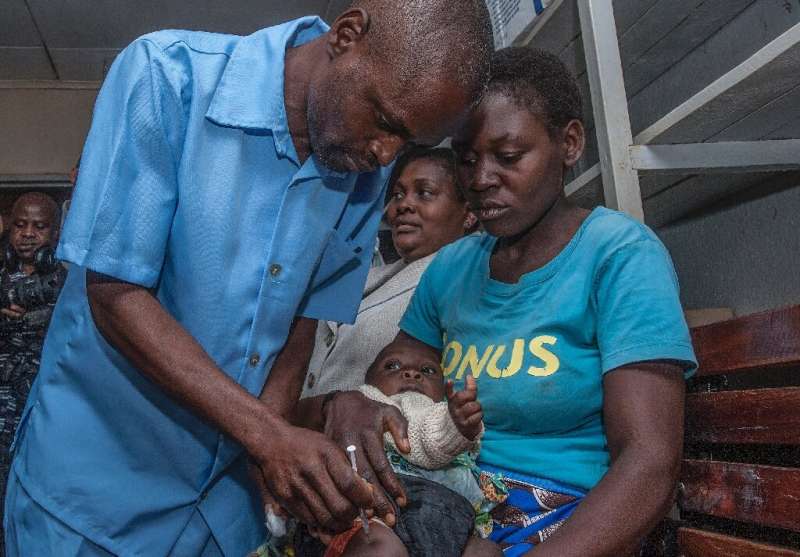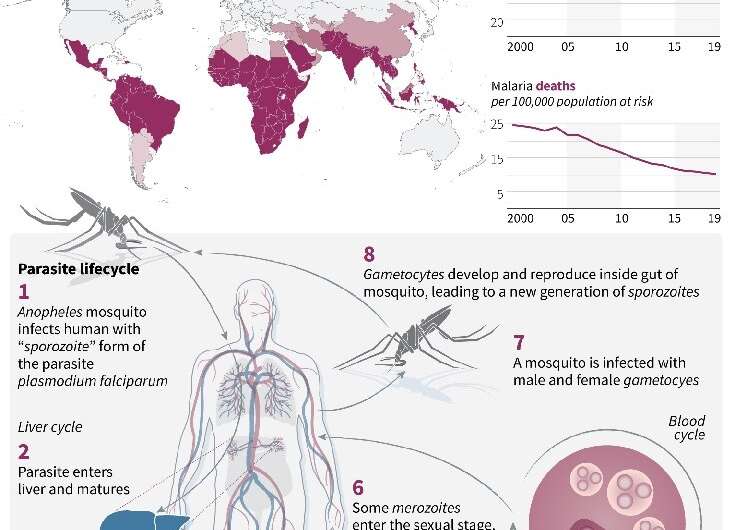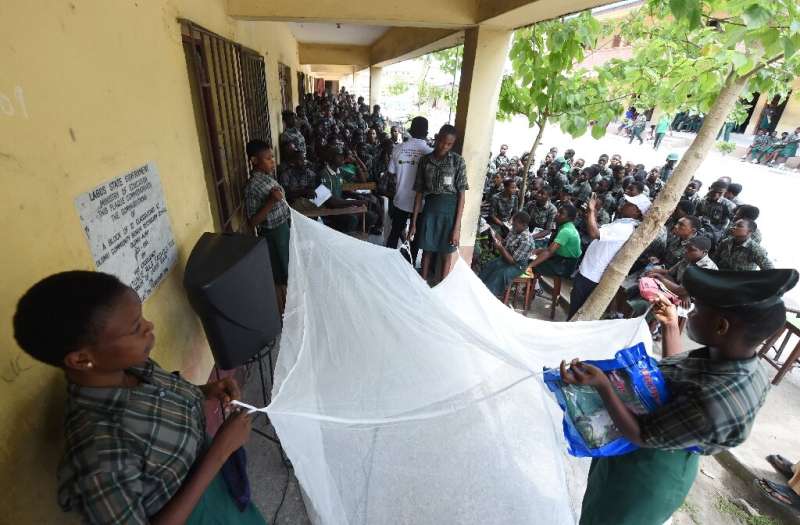WHO recommends use of first malaria vaccine for children

The World Health Organization on Wednesday endorsed the RTS,S/AS01 malaria vaccine, the first against the mosquito-borne disease that kills more than 400,000 people a year, mostly African children.
The decision followed a review of a pilot programme deployed since 2019 in Ghana, Kenya and Malawi in which more than two million doses were given of the vaccine, first made by the pharmaceutical company GSK in 1987.
After reviewing evidence from those countries, the WHO said it was "recommending the broad use of the world's first malaria vaccine", the agency's director general Tedros Adhanom Ghebreyesus said.
The WHO said it was recommending children in sub-Saharan Africa and in other regions with moderate to high malaria transmission get four doses up to the age of two.
Every two minutes, a child dies of malaria, the agency said.
More than half of malaria deaths worldwide are in six sub-Saharan African countries and almost a quarter are in Nigeria alone, according to 2019 WHO figures.
Symptoms include fever, headaches and muscle pain, then cycles of chills, fever and sweating.
Findings from the vaccine pilot showed it "significantly reduces severe malaria which is the deadly form by 30 percent," said Kate O'Brien, Director of WHO's Department of Immunization, Vaccines and Biologicals.

The vaccine is "feasible to deliver", she added and "it's also reaching the unreached... Two thirds of children who don't sleep under a bed net in those countries are now benefiting from the vaccine."
Many vaccines exist against viruses and bacteria but this was the first time that the WHO recommended for broad use a vaccine against a human parasite.
The vaccine acts against plasmodium falciparum—one of five malaria parasite species and the most deadly.
"From a scientific perspective this is a massive breakthrough," said Pedro Alonso, Director of the WHO Global Malaria Programme.
'Glimmer of hope'
Matshidiso Moeti, the WHO regional director for Africa said Wednesday's recommendation "offers a glimmer of hope for the continent which shoulders the heaviest burden of the disease."
The estimated cost of malaria in sub-Saharan Africa is over 12 billion dollars a year, Alonso said at a news conference following the announcement.

Before the newly recommended vaccine can reach children in need, the next step will be funding.
"That will be the next major step... Then we will be set up for scaling of doses and decisions about where the vaccine will be most useful and how it will be deployed," said O'Brien.
Gavi vaccine alliance said in a statement after the WHO announcement that "global stakeholders, including Gavi, will consider whether and how to finance a new malaria vaccination programme for countries in sub-Saharan Africa."
The fight against malaria received a boost in April when researchers from Britain's Oxford University announced that their Matrix-M vaccine candidate had become the first to surpass the WHO's threshold of 75-percent efficacy.
Germany's BioNTech, which developed a coronavirus vaccine with US giant Pfizer, also said it aimed to start trials for a malaria vaccine next year using the same breakthrough mRNA technology.
The WHO also hopes this latest recommendation will encourage scientists to develop more malaria vaccines.
The RTS,S/AS01 is "a first generation, really important one," said Alonso, "but we hope... it stimulates the field to look for other types of vaccines to completement or go beyond this one."
© 2021 AFP





















